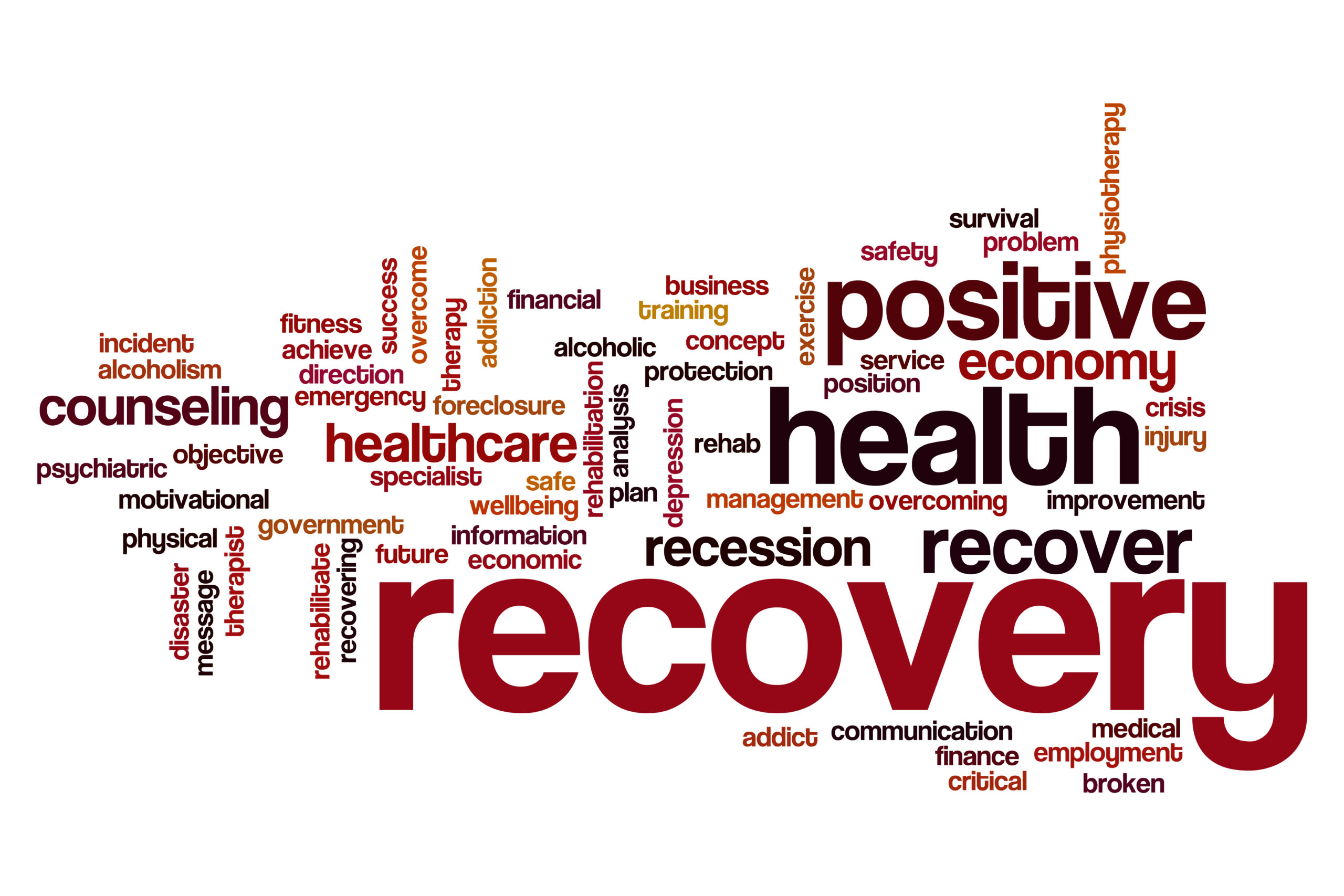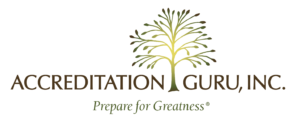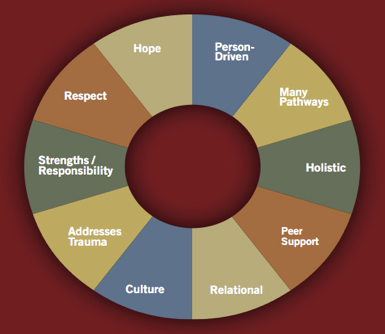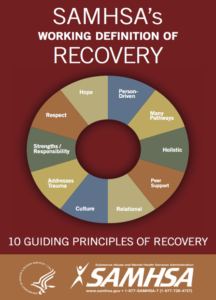Achieving accreditation is recognition that your organization adheres to a higher level of standards; that you are producing high quality services; and are operating at an effective level as recognized by an expert outside agency.
Five Reasons for Substance Use Treatment Providers to Become Accredited
Substance use disorder treatment providers have many reasons to seek national accreditation and to benefit from this process. Whether seeking accreditation from The Joint Commission, CARF International, Council on Accreditation (a division of Social Current), Accreditation Commission for Health Care (ACHC), or other, here are 5 top reasons to become accredited:
Reason #1 – Promotes Quality Treatment in a Safe and Healthy Environment
An external survey of quality and safety conducted by well-trained professional accrediting body surveyors provides reassurance and builds trust for the individual, family, or referral source seeking a treatment resource. The accreditation hallmark distinguishes a treatment resource as going beyond minimum state licensing standards. Accrediting bodies promote accredited organizations on their websites so that parents, individuals, and healthcare professionals can easily identify treatment resources with the accreditation hallmark of distinction.
Reason #2 – Strengthens Business Practices
Accreditation standards address ethical marketing practices, require transparency in plans and policies, look for actions taken based on staff and consumer feedback, and promotes equity in treatment based on the person’s needs.
Reason #3 – Standardizes Administrative and Clinical Processes
Accreditation supports consistent delivery of good care to every consumer. It requires a multi-dimensional assessment (best practice) so that each consumer is receiving exactly the care and treatment needed by competent and qualified staff. The standardization of processes provides a framework for increasing service capacity, allowing for expansion of levels of care, new programs and services, and treatment at additional locations.
Reason #4 – Expands Reimbursement Options
Accreditation is increasingly being used as an indicator of quality by third-party payers as a condition of substance use treatment payment approval. Private, commercial insurance companies, and managed care entities require accreditation to become an “approved” provider. The accreditation hallmark of quality and safety may also result in more diversified referral sources as healthcare professionals recognize the organization’s commitment to quality and safety.
Reason #5 – Supports Efficient and Effective Billing
Being reimbursed in a timely manner is a critical business practice component for any substance use treatment provider. The clinical documentation required by accrediting bodies supports and justifies admissions (medical necessity of services), level of care, treatment interventions, continued stay/treatment, and transfer or discharge. This type of clinical documentation reduces denials of reimbursement or provides the documentation needed for appeals of denials.
The results of a recent study of Joint Commission accredited organizations by ROI Institute supports National Accreditation and identifies returns on accreditation investment.
If you are ready to reap the benefits of accreditation for your organization, or if you have questions about the process, please contact us.
For more information or questions about the contents of this article, please write or call Peggy Lavin @ Peggy@AccreditationGuru.com / 847.219.1296.
This post contains original content and was written for Accreditation Guru, Inc. Use of this copy is permitted with credit and reference within the same body of copy to Accreditation Guru, Inc.
Recommendations on using a consultant for the accreditation process
Is your organization considering accreditation? Here are some recommendations on ways a consultant can assist in your accreditation process.
We are happy to answer any questions on accreditation consulting that you may have. Call us at 212.209.0240 or email Jennifer Flowers
Convenient, Informative Webinars Help Answer Your Questions About Accreditation
Part of our vision at Accreditation Guru is to inform and support organizations that are seeking accreditation. As part of that mission, we were thrilled to co-host a webinar with BestNotes, a healthcare IT software and consulting firm, to explain the accreditation process to their customers.
Many different factors can prompt an organization to pursue accreditation. These drivers may come from internal decisions, such as a commitment to quality and safety, or a desire to attract high-quality employees. Others may be external, such as regulatory or reimbursement requirements.
There are many advantages to accreditation that vary depending on the organization or the accrediting body. In general, some of the biggest advantages include:
- Improvements to quality and safety
- Risk reductions
- Improvements to service delivery
- Better documentation of organizational plans, policies, and procedures
- Creating a specific plan to go “above and beyond”
A portion of Accreditation Guru’s webinar with BestNotes examined the similarities and differences between two accrediting bodies: CARF International and The Joint Commission. We compared fee structures, accreditation timelines, the scope of accreditation, and how long it lasts. Webinar attendees were better equipped to decide which accrediting body to partner with.
We specifically focused on these two organizations because they were the most relevant to BestNotes’ customers, which primarily included behavioral health and substance use disorder treatment providers. However, Accreditation Guru has experience with a variety of other accrediting bodies.
Because BestNotes is an electronic health record (EHR) software provider, we specifically discussed how an EHR can help behavioral health organizations prepare for accreditation and maintain compliance afterward. This includes encouraging better documentation, collecting and analyzing data, and making billing more efficient.
We always recommend that behavioral health providers implementing an EHR system do so as soon as possible when pursuing accreditation. This will give staff plenty of time to learn the software and give the organization time to troubleshoot any issues. This helps the provider prepare for accreditation more effectively and reap the benefits of an effective EHR.
During this webinar, we were able to share specific, relevant insights learned from our years of experience with the accreditation process. We explained some of Accreditation Guru’s additional services, including strategic planning, board development and training, risk assessment, and project management. We concluded the webinar with a Q&A segment for all participants.
“BestNotes was happy to partner with Accreditation Guru to present this webinar to our customers,” says Jon Winther, MBA, Chief Marketing Officer at BestNotes. “A lot of our customers are behavioral health providers in their ‘startup’ stage and just beginning to explore their accreditation options. Accreditation Guru shared information tailored to their specific needs, in an easy to understand format, with plenty of time for questions at the end. Our customers really appreciated the insights and felt better prepared to pursue accreditation for their facilities.”
Accreditation Guru has hosted similar webinars with other IT companies, insurance brokers, and billing companies. In each case, our webinar is tailored to the audience, providing relevant information for their specific accreditation process.
Interested in partnering with Accreditation Guru, or co-hosting a webinar for your own customers? We’d love to talk to you about how best to answer their questions and share expertise that can guide them on their accreditation journey. To learn more, get in touch with Peggy Lavin, LCSW, Director of Behavioral Marketing at Peggy@AccreditationGuru.com today!
How do you best “sell” accreditation to board of directors and staff?
What happens when a mandate for accreditation is on the horizon or comes through?
How Accreditation Supports Recovery Principles
The national accrediting bodies have been among the moving forces in the integration of the recovery model into the care, treatment and services for people with mental health and/or substance use disorders. Recovery principles can now be seen throughout behavioral health standards of accrediting bodies as well as the outlined expectations that an organization will demonstrate conformance/compliance to these standards. And, the integration makes sense – this model not only complements the more traditional model of medication and “talk” therapies, but also expands the focus to include the person’s own goals and strengths and empowers them to be actively involved in the process.
The US Substance Abuse and Mental Health Administration (SAMHSA) has also integrated the recovery model in their publications, requirements for certified community-based behavioral health clinics, training materials, and grants. To that end – they’ve developed the Working Definition of Recovery. Several of the guiding principles shown here are addressed in the accrediting bodies’ standards.
Accrediting bodies’ implementation of such a model involves workforce training so that staff can fully understand and embody the organization’s philosophy, thus permeating service delivery to positively impact the recovery of the people served. In addition, the accreditation survey process itself supports the recovery principles. Surveyor(s) not only review written documents, but also observe interactions amongst staff at all levels and persons served and share their observations with the organization. This external survey can confirm, enhance, and strengthen the organization’s intent and commitment to recovery principles
While accreditation as a whole supports the recovery model, below are specific examples of ways in which accreditation and the recovery model intersect:
Person-Driven – An individualized plan of care, treatment, and services based on the needs, strengths and abilities, preferences/expectations and goals of each person being provided care, treatment or services is a core accreditation requirement. “Boiler plate” plans that repeat over and over the same information for each person served will result in survey findings (unsatisfactory conformance/noncompliance with standards) and the need for correction to achieve full accreditation. Furthermore, it’s an expectation that an accredited organization actively involve the person served in identifying their needs and preferences for aftercare and, as much as possible, making choices about where, type, and by whom.
Holistic – The needs of the person in relation to various life domains, such as physical health and housing, are addressed in case management/care coordination standards (assessment of the person’s needs and assistance in meeting these identified life domain needs). Since access to routine and needed physical health care can be a challenge for those who need it, the accrediting bodies offer options for the integration/coordination of physical health care. Health Home standards have been established to facilitate successful integration of physical health care with an organization’s traditional behavioral health programs.
Culture and Respect – Accreditation standards emphasize that the person served encounters respect in all aspects of their care, treatment, or service experience and this is reflected in the organization’s policies, procedures, rules, and expectations as well as the rights and responsibilities of the person served. Standards clearly emphasize that service delivery is provided by staff in an atmosphere of respect and understanding and sensitivity to cultural values, beliefs, and preferences.
Trauma – The approach of the accrediting bodies to trauma centers around their screening and assessment, planning and delivery of services, and workforce training standards. Standards require a screening and assessment process to identify people whose lived experiences either currently and/or in the past may have included trauma(s). Also, organizations need to demonstrate that the impact of trauma on the person served is considered in the planning and delivery of care, treatment, or services.
Peer Support – Peer support services are an important component of the recovery model. These services are part of the plan of care, treatment, or services, and are provided by trained individuals who share similar lived experiences with mental health and substance use challenges. Accrediting bodies not only recognize the utilization of this type of service by mental health and substance use treatment providers, but also have developed standards addressing the integration of these services into the planning of care with the active involvement of the person served.
The accrediting bodies require written plans, policies, or procedures promoting these recovery principles to form a framework for implementation and a communication to staff and people served of the philosophy, beliefs, and values of an organization.
For more information on the recovery model and/or how accreditation can benefit your organization, visit AccreditationGuru.com.
For more information or questions about the contents of this article, please write or call Jennifer Flowers @ Jennifer@AccreditationGuru.com / 212.209.0240. This post contains original content and was written for Accreditation Guru, Inc. Use of this copy is permitted with credit and reference within the same body of copy to Accreditation Guru, Inc.
Is there any way to make accreditation fun?
What is Accreditation?
Accreditation is a review process to determine if human service, healthcare or educational programs demonstrate their ability to meet defined standards of quality. Once achieved, accreditation is not permanent—it is renewed periodically to ensure that quality is maintained.
Requirements differ per accrediting body, but the intent remains the same: to validate an organization’s commitment to meeting accreditation standards that result in a higher level of performance. Accreditation standards have been researched, vetted and field-tested and are updated regularly, as necessary.
Earning accreditation specifies that the organization (or specific program) is appropriately managing its resources and is continually providing the highest levels of service to its clients and stakeholders. Being accredited provides credibility and helps validate and improve the safety and quality of care an organization provides.
Organizations need to demonstrate conformance with the accrediting body’s requirements by implementing the accreditation standards and undergoing an onsite survey or, more recently due to the COVID-19 pandemic, virtual review.
For human service and healthcare organizations, the broad purposes of accreditation are to establish quality measurement criteria and to raise the level of services and professionalism within a given profession or industry (QUALITY) and to ensure services are delivered in a safe manner and in a safe environment (SAFETY).
Becoming accredited offers organizations professional recognition for meeting the highest standards in quality service delivery while providing clients with an appropriate tool for effectively evaluating service providers. Organizations that achieve accreditation have reached beyond the minimum licensing standards and made a long-term commitment to strong management, program consistency, outcome measurements and continuous improvement throughout their agencies.
Accreditation standards address such areas as:
- Leadership and governance
- Financial controls
- Facilities security and safety
- Workforce development – recruiting, hiring practices, background checks, performance appraisals, training and supervision
- Performance measurement and improvement
- Client rights and confidentiality
- Program administration and service delivery
With all of the needed information in-hand during a survey, the accrediting body will determine whether accreditation has been earned and, if so, will accredit the organization accordingly.
The entire process may take anywhere from 12 to 18 months to complete. For behavioral health and social service organizations, accreditation is valid for 3 or 4 years and there is another full survey at the end of each accreditation cycle.
While accreditation is generally a private (non-governmental), voluntary process, it is often a significant decision-making consideration by potential clients, individual donors, foundations, governmental funding agencies, and billing and private insurance companies.
Here are just a few of the businesses and nonprofits that value the benefits of maintaining accreditation within their respective industries:
- Mental healthcare and substance use treatment facilities
- Service providers for people with intellectual or developmental disabilities
- Foster care and adoption agencies
- Group homes/residential treatment for children and youth
- Early childhood education centers and day care providers
- Hospitals
- Nursing homes and assisted living facilities
- Medical laboratories and blood banks
- Credit counseling agencies
- Colleges and universities – must be accredited by one of the federally-recognized accreditors for students to be eligible for U.S. federal student aid
- Continuing education providers
- Museums
- Aquariums and zoos – Accreditation from angelfish to zebras!
More often than not, many people don’t realize how often accreditation actually touches their lives. Accreditation is everywhere!
If you are ready to explore how accreditation could be a benefit to your organization or if you have questions about the process, please contact us.
For more information or questions about the contents of this article, please write or call Jennifer Flowers @ Jennifer@AccreditationGuru.com / 212.209.0240. This post contains original content and was written for Accreditation Guru, Inc. Use of this copy is permitted with credit and reference within the same body of copy to Accreditation Guru, Inc.













